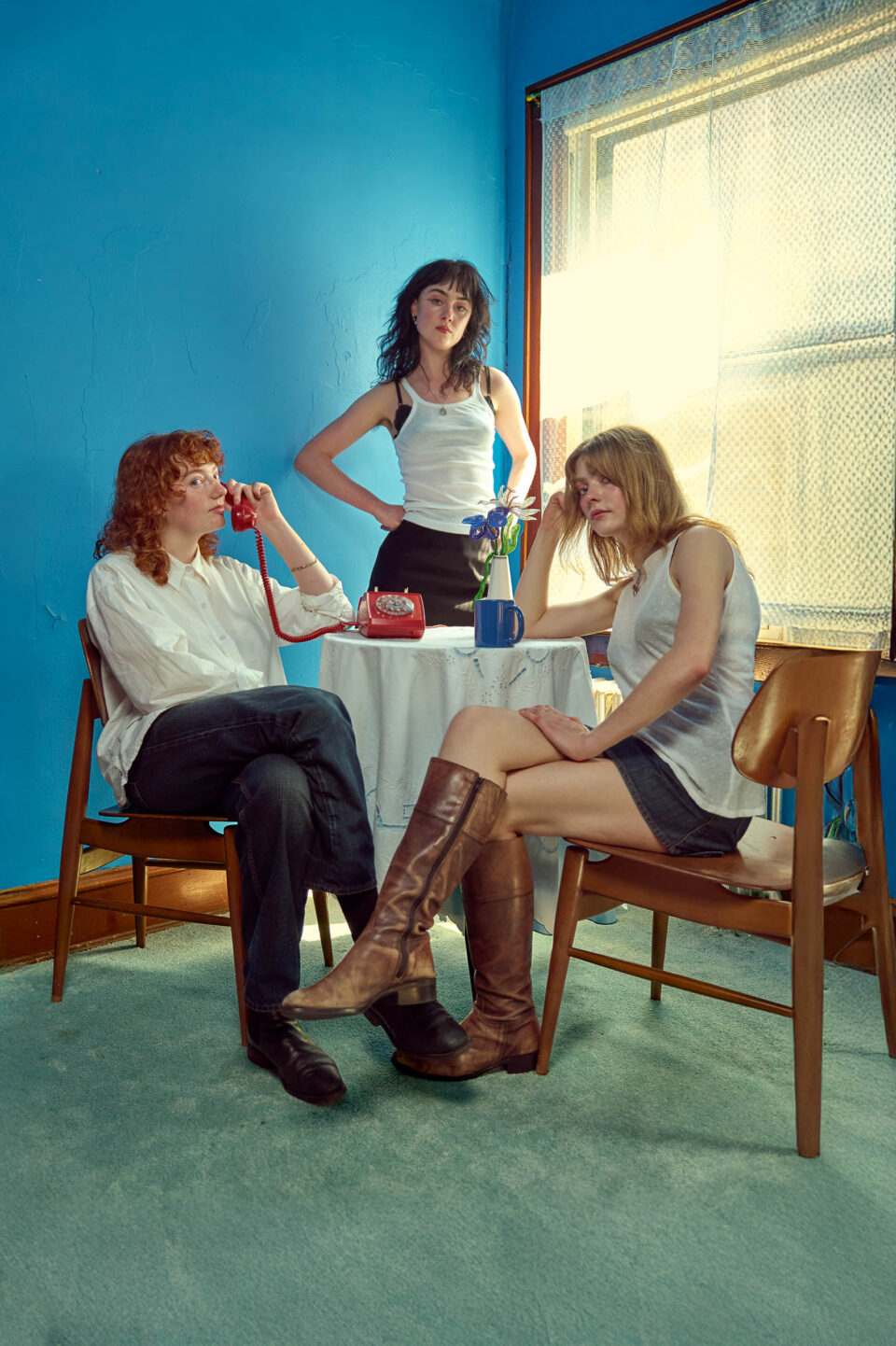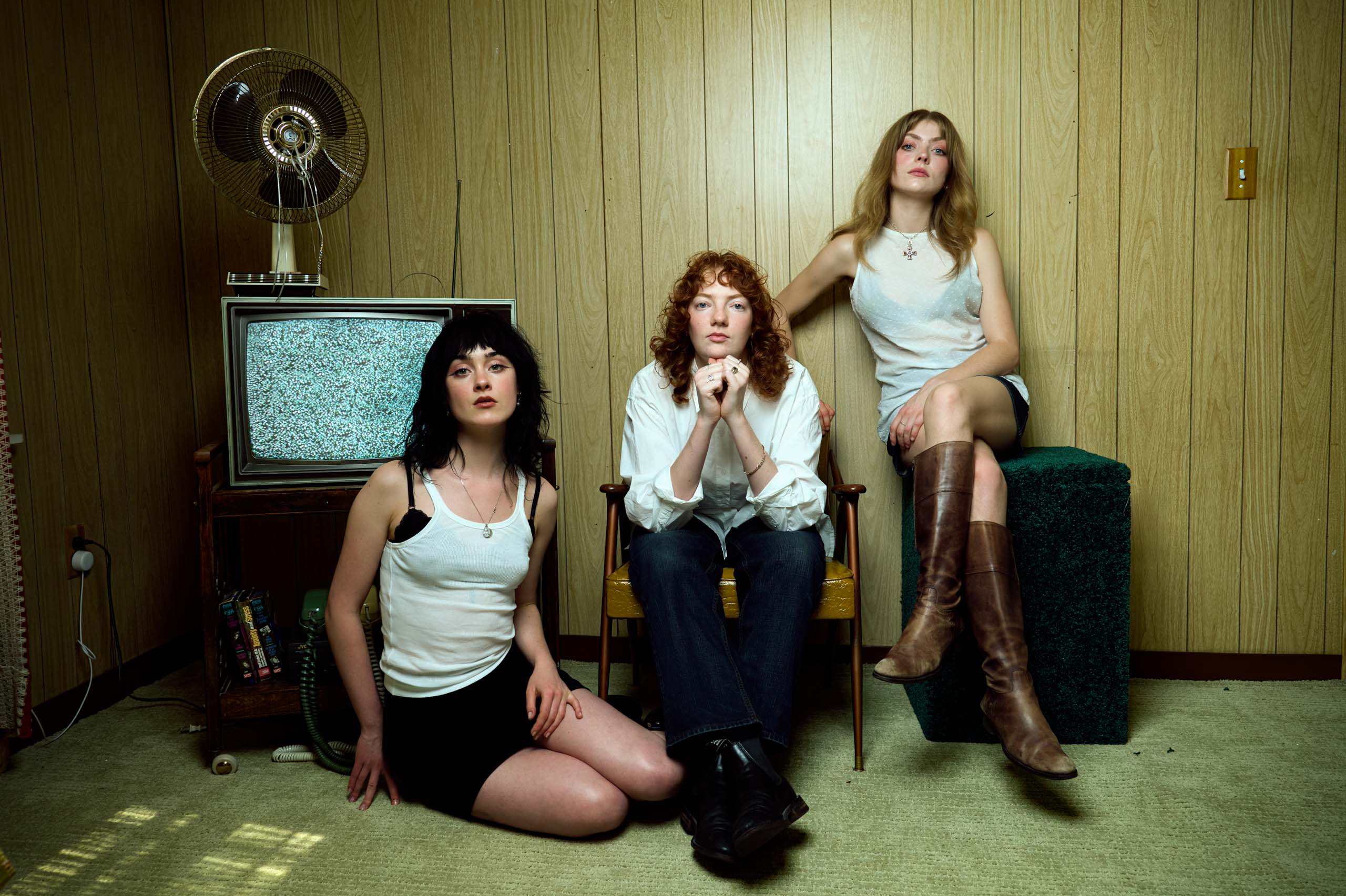BACKSTORY: Gracie Sinclair, Jeanie Pilkington, and Heide Peverelle have been writing and recording together for five years, beginning their journey as friends with shared influences who quickly found a near-telepathic musical connection
FROM: Melbourne, Australia
YOU MIGHT KNOW THEM FROM: Tours supporting bands like King Gizzard & the Lizard Wizard, Alex G, and Julia Jacklin
NOW: The trio inked a record deal with Jagjaguwar and teamed up with producer Tom Healy for their studio debut, Now Would Be a Good Time
On Now Would Be a Good Time, the debut album from Folk Bitch Trio, the Australian group consisting of Gracie Sinclair, Jeanie Pilkington, and Heide Peverelle effortlessly meld their individual perspectives into a stunningly cohesive style. Much of this, I suspect, can be traced back to a few key moments early in their career that helped set the stage for their debut. The trio has been writing, recording, and performing together for five years, so when they finally hit the studio with producer Tom Healy in Auckland, New Zealand, the songs were familiar, part of a natural musical language. It allowed them to devote much of their studio time to honing in on accents and aesthetics—the little moments that would make Now Would Be a Good Time such a thrilling listen.
The group also attributes their connection to a friendship that’s deeply entwined with their careers, but supersedes any business or financial priorities. Sinclair, Pilkington, and Peverelle are friends first, a band second, with this sense of priority almost paradoxically creating a space for them to showcase just how deep these relationships truly are. “Working together has never been difficult,” Pilkington explains to me alongside her bandmates via Zoom. “I think if we found it difficult, this project wouldn’t work. It just always happened naturally. It worked out pretty well. We get each other. It’s like, someone would suggest something and the other two were already thinking that.” Pilkington added that their working relationship is “a strength.”
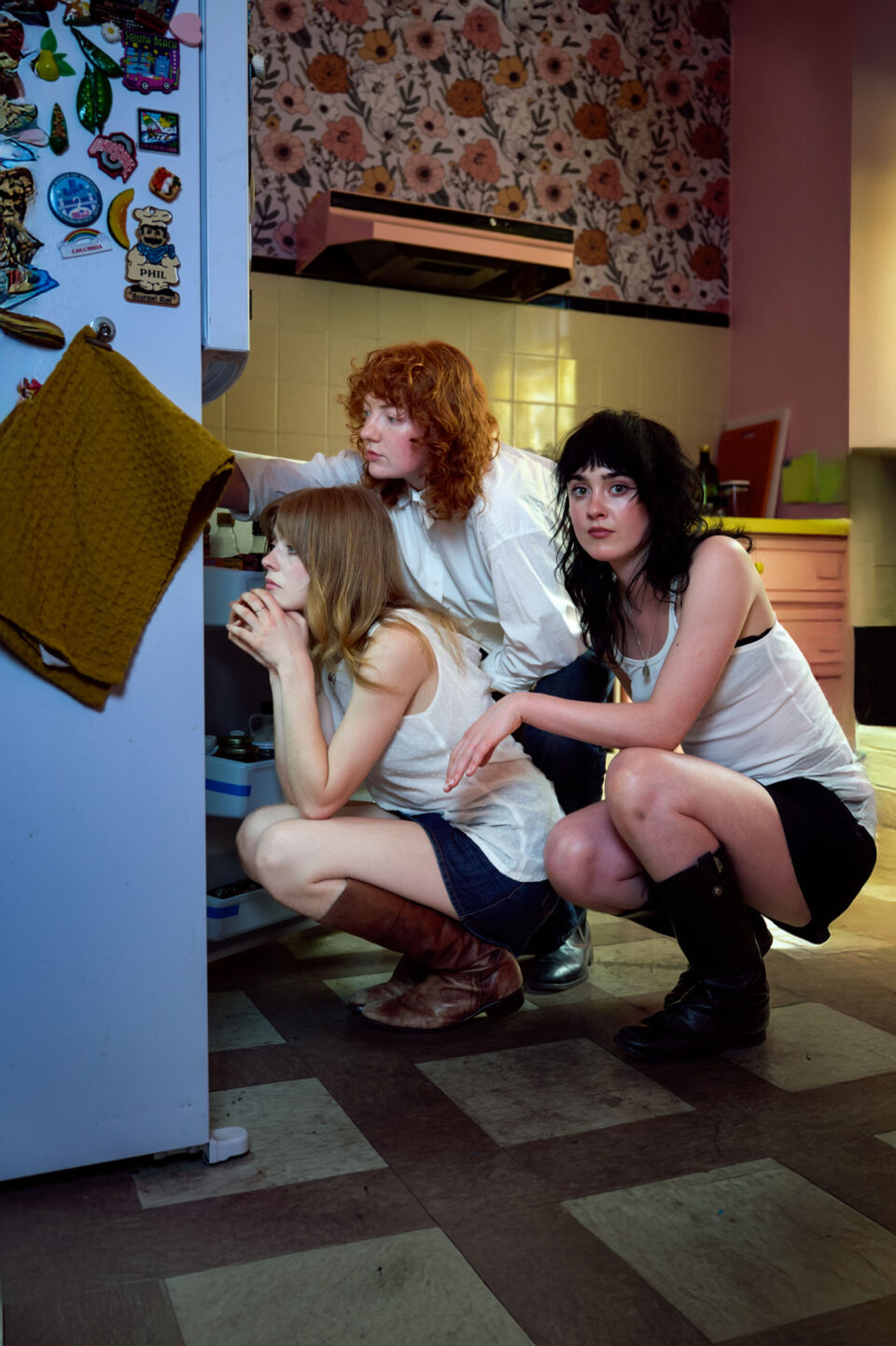
“We get each other. It’s like, someone would suggest something and the other two were already thinking that.” — Jeanie Pilkington

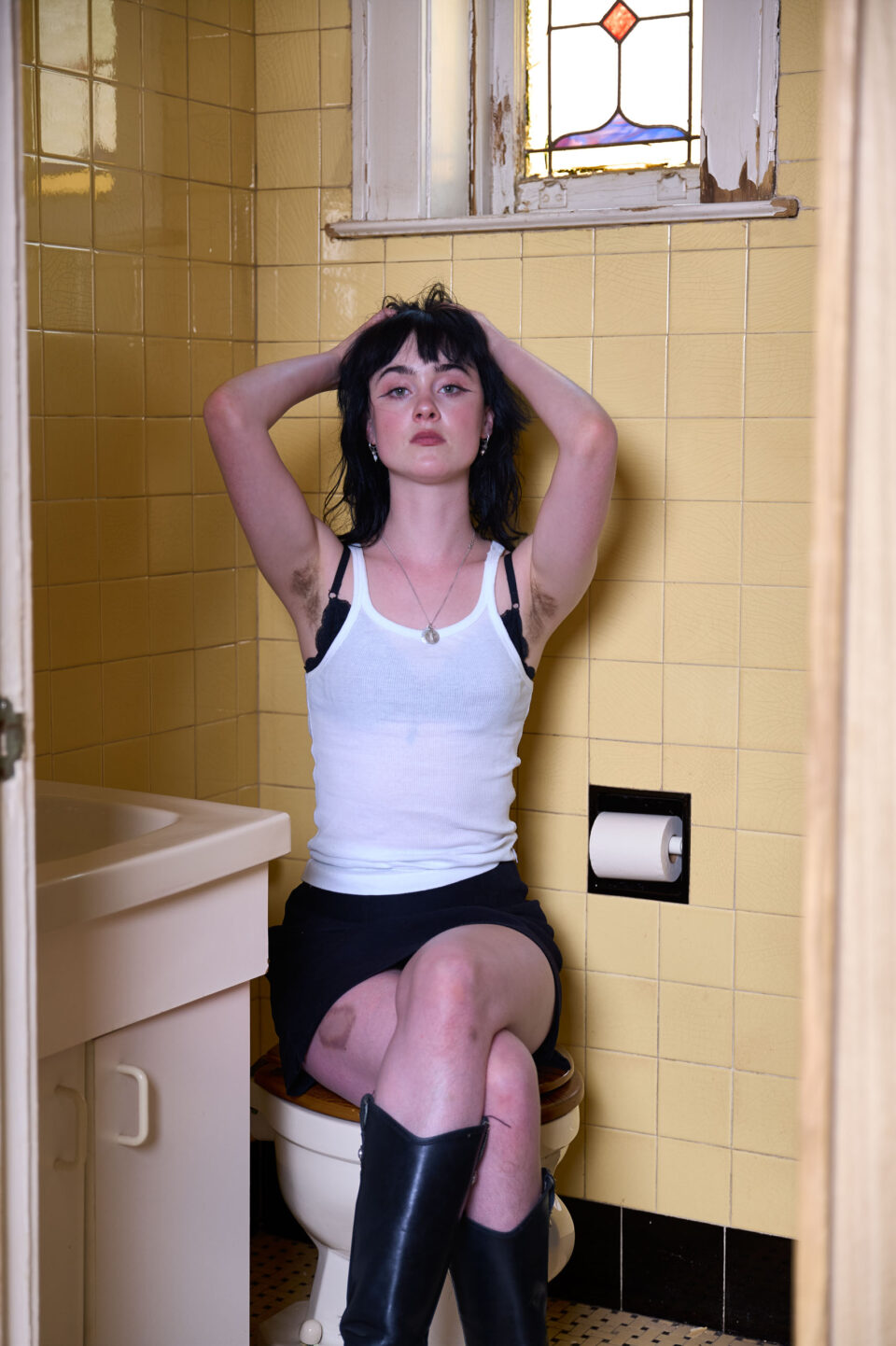

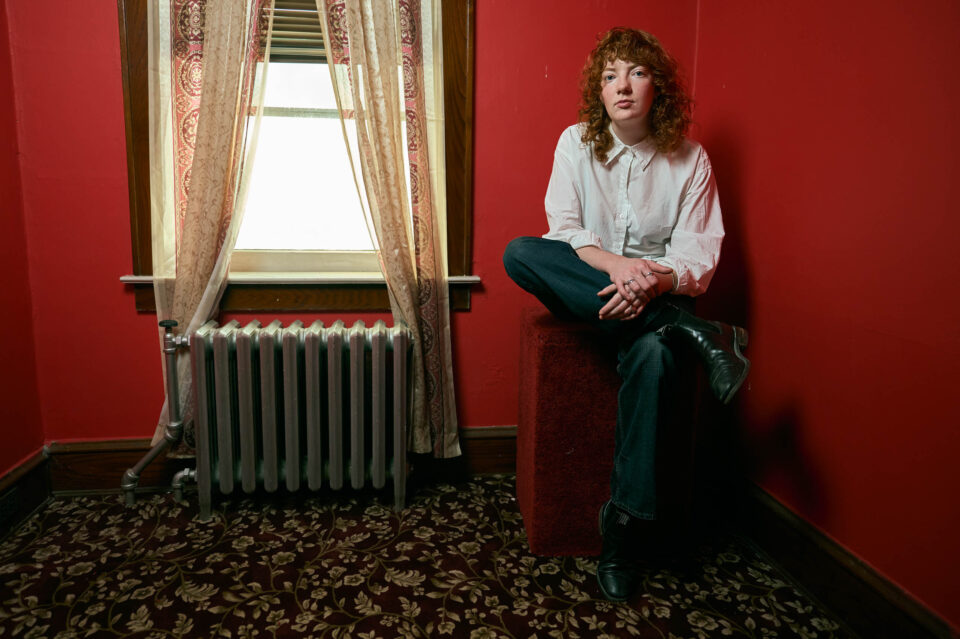
That strength is apparent throughout the album, as heard on the country-tinged twang of opener “God’s a Different Sword,” or the haunting pensiveness of “Moth Song.” There’s a sort of telepathy that moves through the track list, an internal logic that’s impossible to predict but plain as day to identify once you’ve heard it. For that sort of instinct, the group pays thanks to some of their favorite writers, singers who weave dagger-sharp witticisms into deeply felt narratives and honest reflections. “Rufus Wainwright was a big influence,” says Peverelle. “There were just bits of that album Want One of his that I wanted to be on the record, somehow. I don’t know if it managed to be there, but I was hearing him a lot.” The group also pointed to artists like Courtney Barnett, Cameron Winter, and Jeff Tweedy as songwriters who toe the line between deeply serious and riotously funny—a balance that Folk Bitch Trio themselves manage on their debut.
The group also discussed how living with these songs for a number of years created a sensation equal parts comforting and surreal. “’Sarah’ was written when we were 19 or something,” Peverelle continues. “And being that young and writing songs—it feels overly earnest, but I think it’s changed meaning for all of us.” Adds Sinclair: “That’s the marker of a good song. When we were getting down to what’s going to be on the record, it was like, ‘What’s going to stand the test of time? What are we still singing?’”
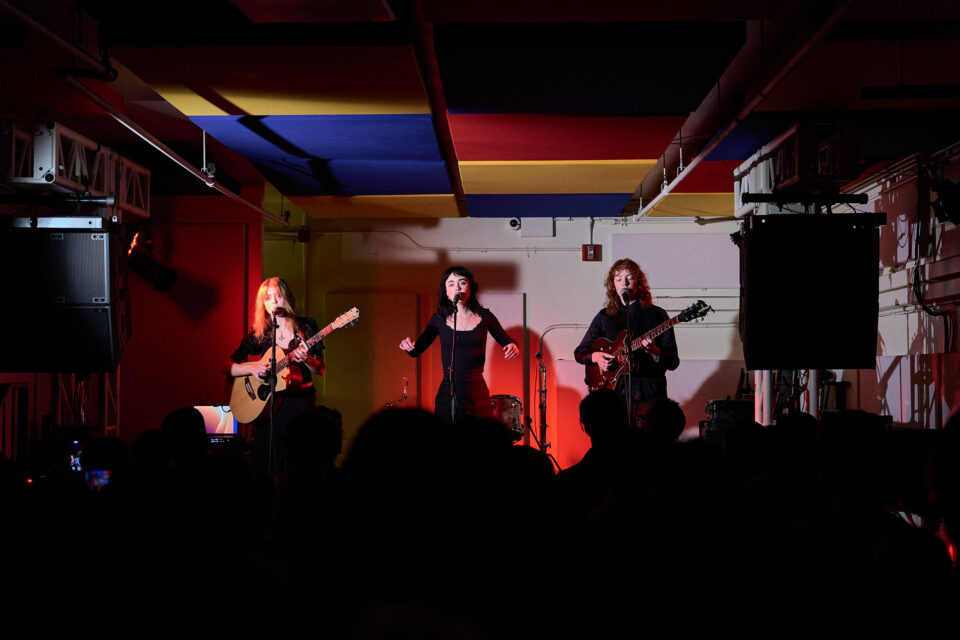
“When we were getting down to what’s going to be on the record, it was like, ‘What’s going to stand the test of time? What are we still singing?’” — Gracie Sinclair
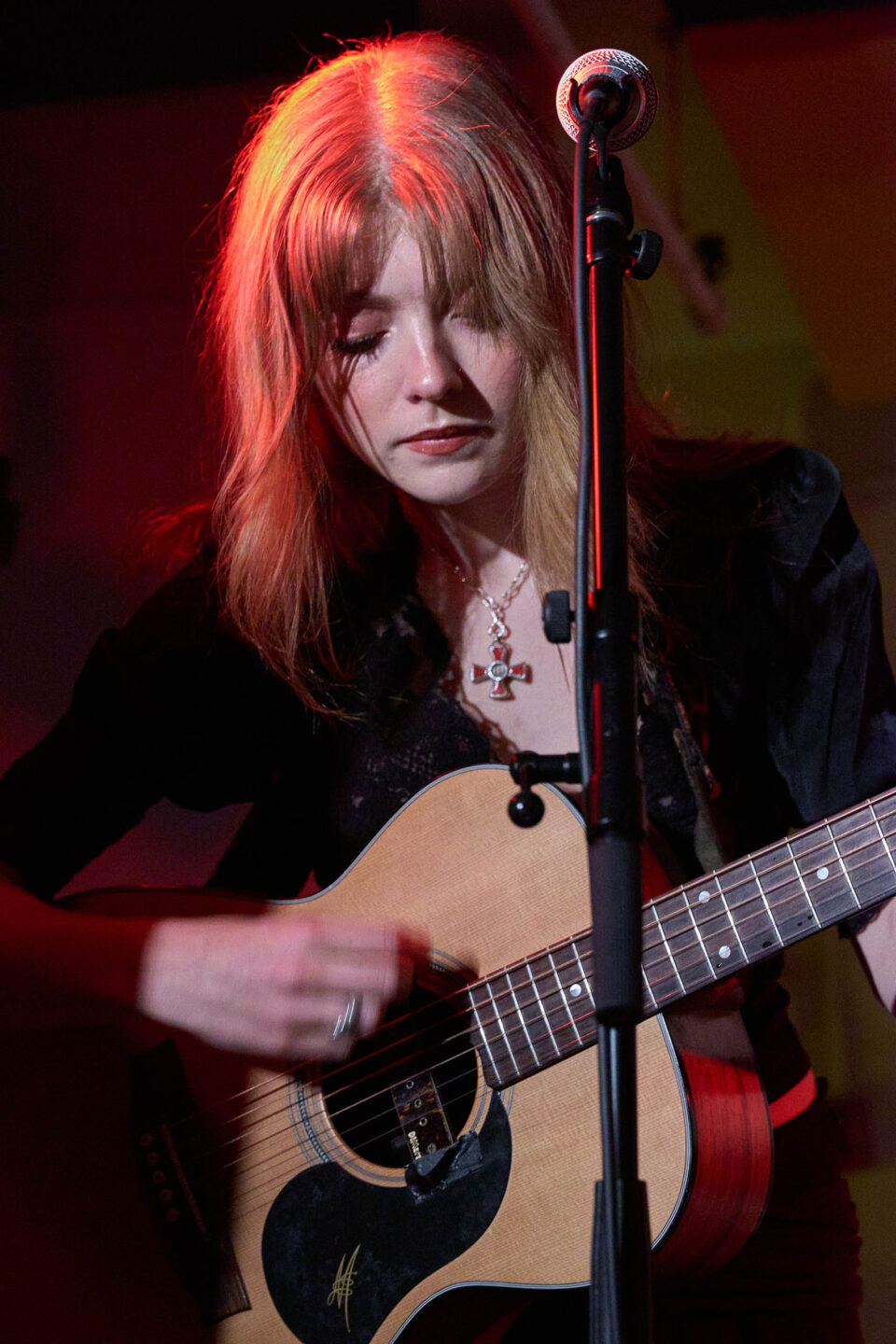
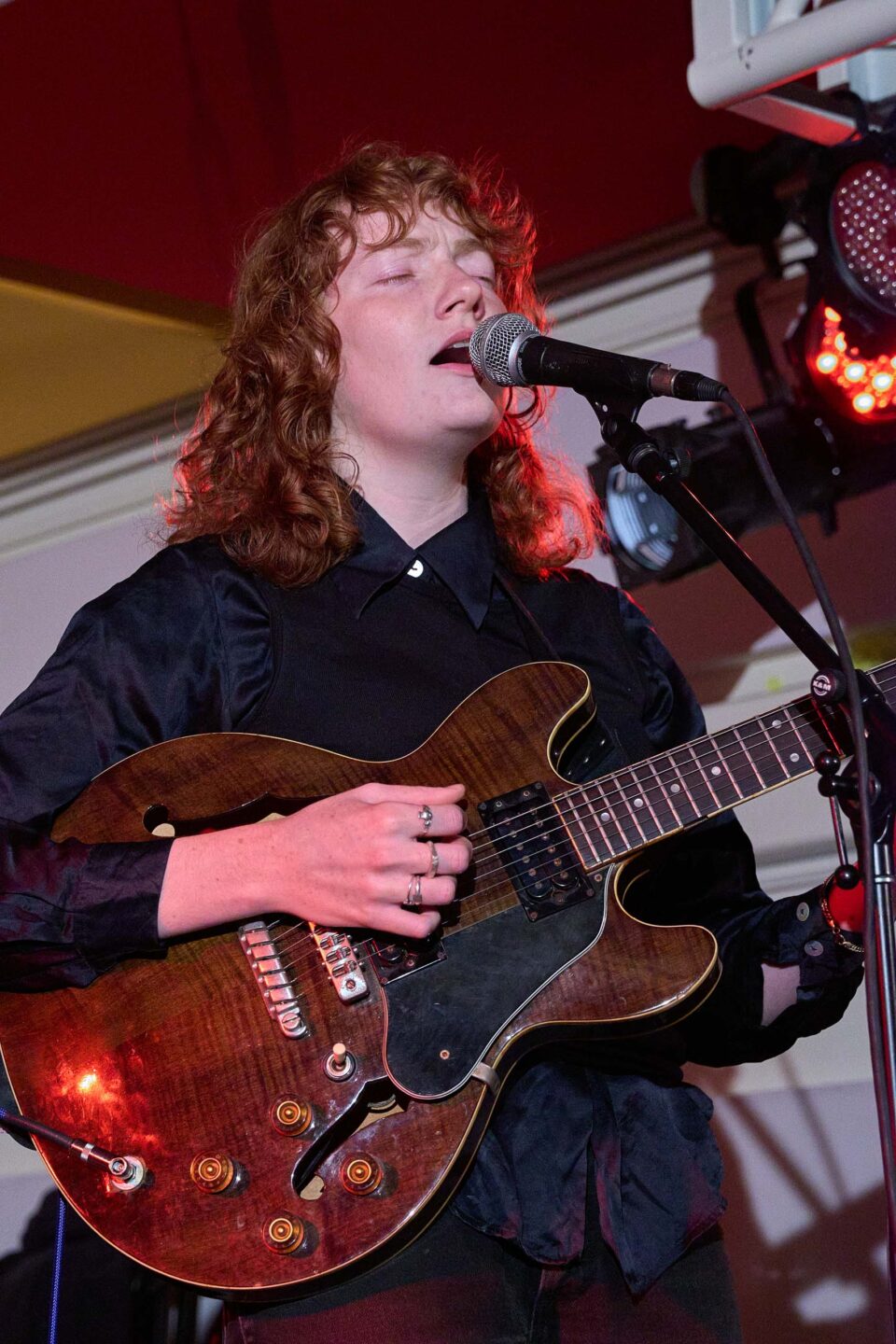
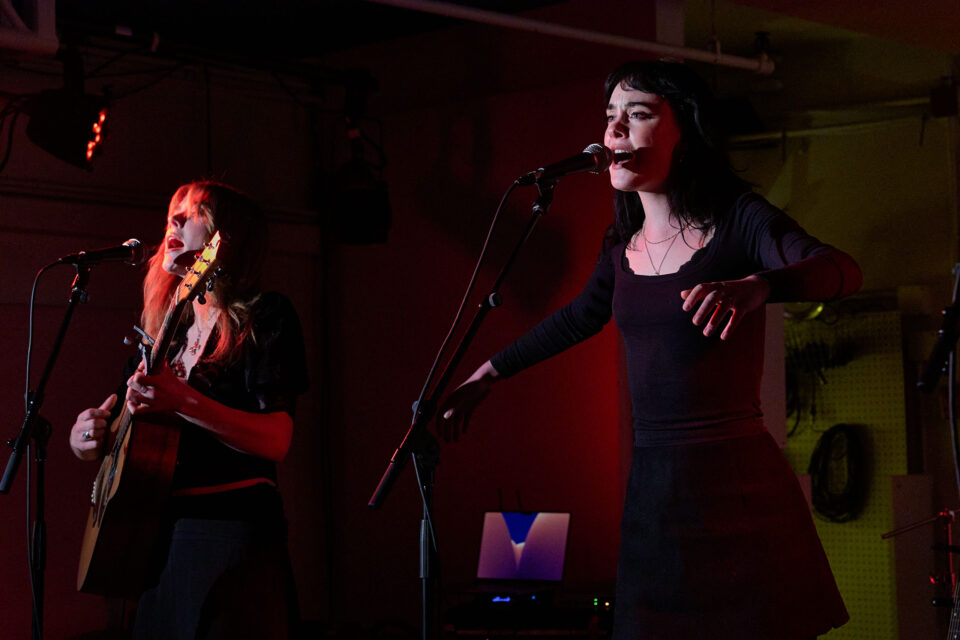
Now Would Be a Good Time, as such, sounds both lived-in and strikingly new. Part of this is due to recording technique. The trio had messed around with a bunch of different methods before realizing that tracking the project to tape gave it a textural, tangible quality they grew enamored with. The band first started experimenting with tape during sessions in Tasmania with M. Ward. “We realized that maybe it’s what we were missing in sessions we’d done where we hadn’t loved the outcome,” Pilkington says. “The recording sounded too polished when they’d come through digital mastering.”
This lived-in feel gives the album a place within the rich tapestry of folk music that alludes to a shared history, but is restlessly looking toward new, undiscovered places. That’s what the band wanted to accomplish with Now Would Be a Good Time: to make an album that’s of a particular moment but exists within a greater context, too. “We didn’t start this outfit with the idea that we’d be a touring band that would even leave Australia, or that would release an LP,” Pilkington explains. “It was just based off of enjoying what we were doing.”
Adds Sinclair: “We have big dreams and big aspirations, but at the heart of it is wanting to play music and play for people.” FL
